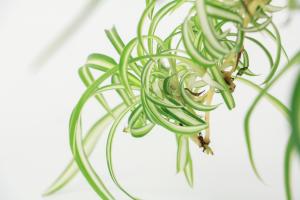How to Get Rid of Flies from Potted Plants
Potted plants can add life and color to any space in your home, but they can also attract unwanted visitors such as flies. Flies are not only irritating, but they can also lay eggs in your soil which can cause problems for your plants. In this article, we will discuss some effective methods to get rid of flies from potted plants.
Cleanliness is Key
If you want to keep flies away from your potted plants, it is crucial to keep your plants and their surroundings clean. Make sure to remove any dead leaves, fallen petals, or other debris from your soil and planters. This will not only help prevent flies from laying eggs in your soil but will also help prevent other pests and diseases from attacking your plants.
Additionally, make sure to clean any spills, stains, or residue around your planters. Flies are attracted to moist and dirty areas, so keeping things clean will make your plants less inviting to them.
Use an Insecticidal Soap
A natural and effective way to get rid of flies from your potted plants is by using an insecticidal soap. This type of soap is made with natural ingredients that are safe for your plants but deadly for flies and other insects.
To use, simply mix the insecticidal soap with water according to the instructions on the label and apply it to the affected areas of your plants. Be careful not to overapply as too much can harm your plants. Repeat the treatment every few days until the flies are gone.
Try Neem Oil
Another natural remedy for eliminating flies from potted plants is neem oil. Neem oil is a plant-based oil that is effective against various pests, including flies.
To use, mix a few drops of neem oil with water and spray it directly on the leaves and stems of your plants. Repeat this treatment every few days until the flies have disappeared.
Use Traps
You can also use traps to catch flies and prevent them from laying eggs in your soil. There are various types of traps available, including sticky traps and liquid traps.
Sticky traps work by attracting flies to a sticky surface where they become trapped and unable to escape. Liquid traps use a combination of attractants and a liquid that will drown the flies upon contact.
Make sure to place the traps near your plants but not too close as they can also catch beneficial insects such as bees and butterflies.
Conclusion
Flies can be a nuisance for your potted plants, but there are several effective solutions to get rid of them. Keeping your plants and their surroundings clean, using an insecticidal soap or neem oil, and using traps are all natural and effective methods for eliminating flies from potted plants. By following these tips, you can ensure that your plants remain healthy and pest-free in the long run.

 how many times do yo...
how many times do yo... how many planted tre...
how many planted tre... how many pine trees ...
how many pine trees ... how many pecan trees...
how many pecan trees... how many plants comp...
how many plants comp... how many plants can ...
how many plants can ... how many plants and ...
how many plants and ... how many pepper plan...
how many pepper plan...































